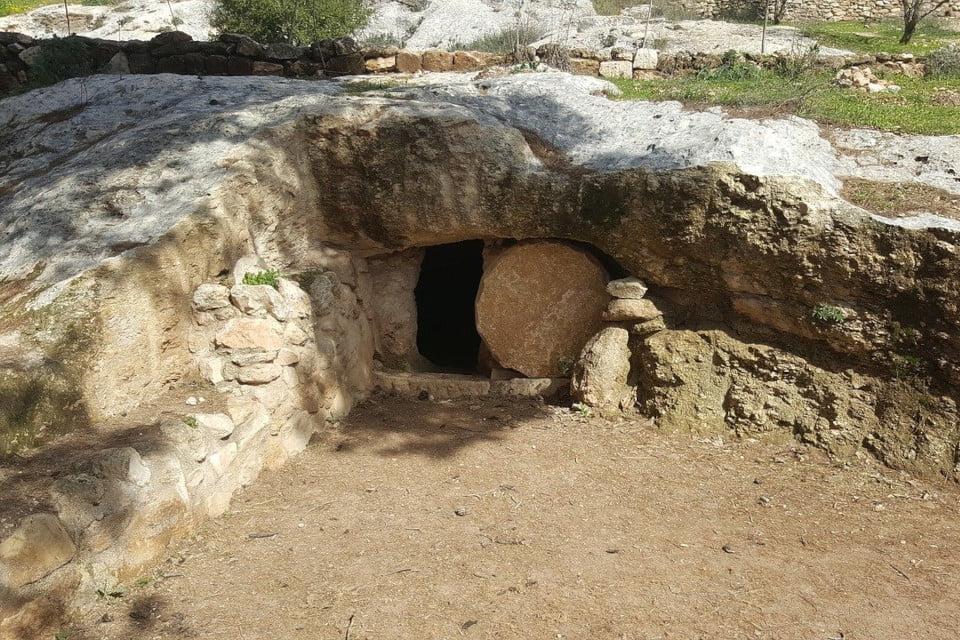
Easter – what’s it all about? According to Wikipedia which quotes “The Easter/Passover Season” (Oxford University Press) Easter, also called Pascha (Aramaic, Greek, Latin) or Resurrection Sunday, is a Christian festival and holiday commemorating the resurrection of Jesus from the dead, described in the New Testament as having occurred on the third day after his burial following his crucifixion by the Romans at Calvary c. 30 AD. So, Easter asserts that Jesus rose from the dead. That’s a big assertion. Is it true? How can we know?
Firstly, like any good journalist or detective you try to find evidence and put the facts together. Are there any clues which have been left behind? Were there any witnesses? Are there any written accounts and how credible are these written accounts?
Was there a more neutral source of historical information? Yes, a Jewish historian, Flavius Josephus ..
Of course, we have the four gospel accounts in the New Testament. “But”, you may argue, “the people who wrote the accounts – two of them were direct followers of Jesus and Mark got his information from the apostle Peter, a follower of Jesus so they are biased”. Although the majority, if not all, scholars agree that these accounts are trustworthy, let’s play it safe and due to possible bias put those aside for now. Was there a more neutral source of historical information? Yes, a Jewish historian, Flavius Josephus (Born AD 37 – just a few years after Jesus was crucified), who became a Pharisee at age 19, said this in AD 66 “Now there was about this time Jesus, a wise man, if it be lawful to call him a man, for he was a doer of wonderful works, a teacher of such men as receive the truth with pleasure. He drew over to him both many of the Jews, and many of the Gentiles. He was the Christ, and when Pilate, at the suggestion of the principal men among us, had condemned him to the cross, those that loved him at the first did not forsake him; for he appeared to them alive again the third day; as the divine prophets foretold these and ten thousand other wonderful things concerning him.” (Antiquities. xviii.33 – Early second century). Then there is the additional quote by Cornelius Tacitus (AD 56 – 120), a Roman historian, who refers to Christ and Christians when explaining how Nero blamed the Christians for the outbreak of a devastating fire in Rome in AD 64 (Annals, C. Tacitus).
Another convincing thought is how the fate of Jesus’ followers testifies to the reality of the resurrection. Ten out of Jesus’ eleven apostles gave up their lives for their belief that Jesus was the Messiah of God. The one other, John, was exiled to live out the rest of his life on the island of Patmos. Would all of Jesus’ disciples really give their lives up if they knew it was all a lie? I think it is highly unlikely. And not only did they give up their lives, but their lives were radically changed.
Ten out of Jesus’ eleven apostles gave up their lives for their belief that Jesus was the Messiah of God.
After Jesus’ death and before he rose from the dead the accounts of the disciples show that they were afraid and discouraged and depressed that their greatest hope upon whom they had pinned all their dreams was dead and gone (Luke 24:13 and following). Two of them were speaking with one another on the way to a town called Emmaus and they were discouraged that Jesus was dead. All the other disciples were hiding in an upper room after Jesus’ death troubled and doubtful when Jesus appeared to these two on the road (Luke 24:36 and following). When they stood before Jesus the account says, “they stood still, their faces downcast”. But we see that in Acts after the disciples realised that Jesus had risen from the dead they were transformed into bold witnesses for the faith. What could account for such a change except that they realised that Jesus had really risen as he said that he would (John 3).
The whole story has the ring of truth. Outside witnesses who were historians, eyewitnesses and their written testimony (Matthew and John), changed lives (the disciples) and bold witnesses making up a thriving early church all point to it being true. The most important question is what do you think of it and how will you act on your answer to that question? If you believe that Jesus was the Son of God then he calls you to follow him. It’s important to find a community of believers where the Bible is honoured who can encourage you in your journey of faith!
Check out the testimony of one man who went on a quest to disprove the resurrection : the testimony of Josh McDowell